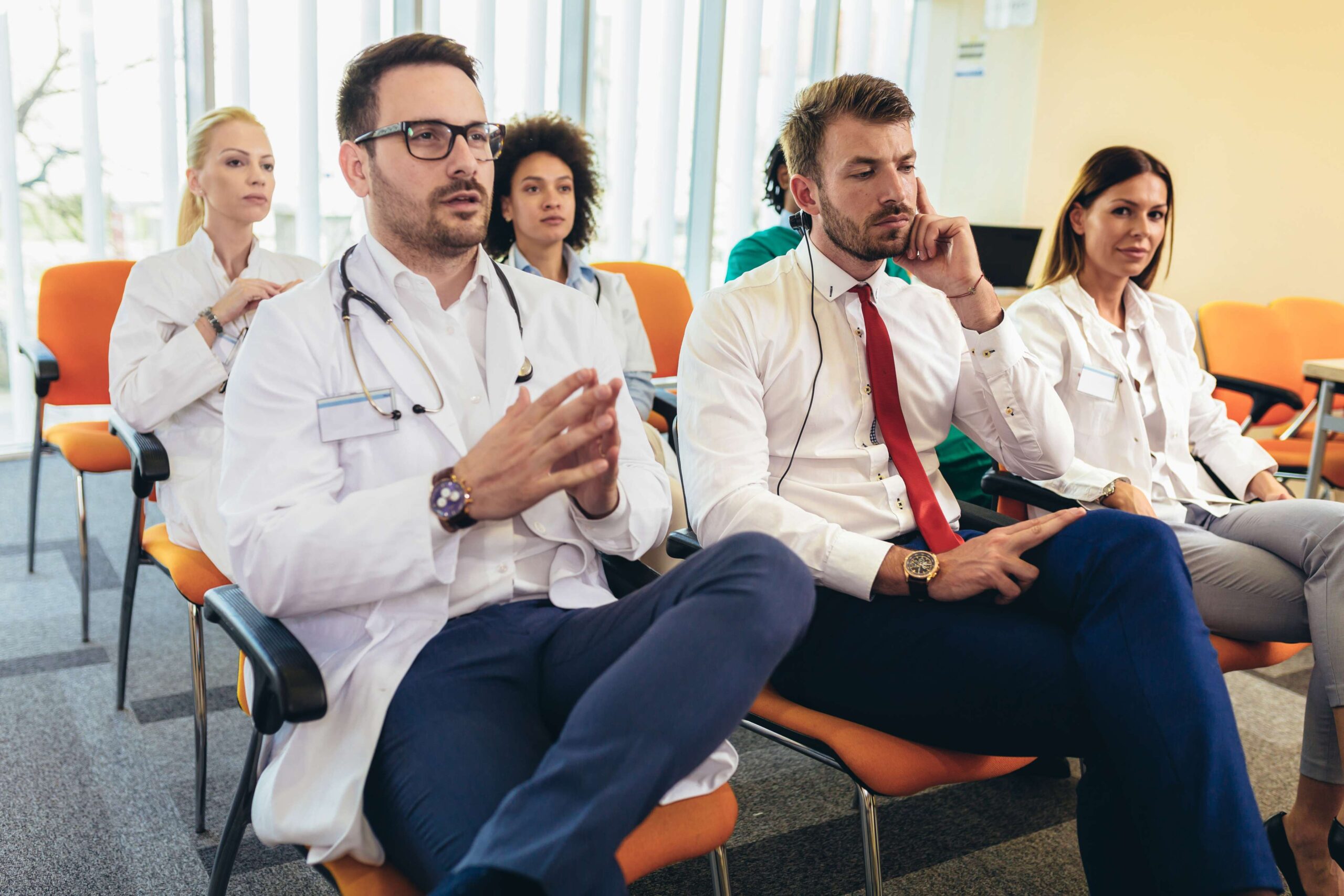When I graduated from PCOM in 2020, I thought I had a solid understanding of what it meant to be a pharmacist. I’d spent years learning about pharmacokinetics, side effects, drug interactions, and treatment plans. I was on the Dean’s List, had done hospital volunteer work, and felt confident stepping into the real world. But here’s the truth: no matter how thorough your education is, pharmacy school can only prepare you for so much. The rest? You learn it on the job—through long days, fast pivots, and real people who don’t always follow the textbook.
My career began during one of the most chaotic and uncertain times in healthcare history: the COVID-19 pandemic. My first job was with CVS, where we weren’t just filling prescriptions—we were racing to get vaccines into nursing homes, community centers, and even major corporations like Delta Airlines. That experience threw me straight into the deep end. And while I’m proud of what I accomplished during that time, I can also say that nothing in pharmacy school could’ve prepared me for what was coming.
1. People Don’t Always Follow the Script
One of the biggest surprises right out of the gate was how unpredictable patient care can be. In school, we’re taught guidelines: if a patient has diabetes, you manage it this way; if they’re on blood thinners, monitor these labs; if they’re elderly, adjust the dose. But in the real world, people rarely fit neatly into those boxes.
You meet patients who don’t remember the names of their medications, who haven’t seen a doctor in years, or who don’t have access to proper care. You deal with folks who are skeptical of medicine, who come in angry or afraid, or who only speak limited English. You have to think fast, speak clearly, and meet people where they are—not where the textbook says they should be.
2. Communication Is Everything
Pharmacy school teaches you the science, but not the language. I’m not talking about medical terminology—I’m talking about how to communicate with a nervous parent, a frustrated elderly patient, or a stressed-out coworker. The ability to explain something complex in simple terms, with patience and respect, is one of the most valuable skills you can have.
During the vaccine rollout for Delta Airlines, I had to talk to thousands of employees—many of whom were hesitant or unsure. The way I spoke mattered just as much as what I said. Learning how to read body language, adjust your tone, and give people space to ask questions was something I picked up on the job, not in a lecture hall.
3. Time Management Can Make or Break You
In school, you have structured schedules. Classes start at a set time. Labs are predictable. But once you enter the workforce, especially in high-volume settings like retail or clinical outreach programs, everything comes at you all at once. Phones ringing. Patients in line. Doctors calling in prescriptions. Insurance rejections. Emergencies.
I had to learn very quickly how to prioritize, stay calm under pressure, and make split-second decisions without letting quality slip. Sometimes that meant skipping lunch, working overtime, or figuring things out on the fly. Pharmacy is fast-paced—and without good time management, burnout becomes very real, very fast.
4. Teamwork Is Non-Negotiable
One of the best parts of being a pharmacist during the COVID response was working with pharmacy technicians, nurses, and fellow pharmacists toward a common goal. When we were vaccinating Delta employees, it wasn’t just about giving shots—it was about managing an entire team, organizing workflows, and creating a system that could get thousands of people through safely and efficiently.
Pharmacy school often focuses on individual performance: your exams, your rotations, your GPA. But in the real world, you can’t do this job alone. The relationships you build with your team are everything. Respecting their roles, listening to their input, and creating a supportive environment leads to better care for everyone.
5. Mistakes Happen—and They Teach You More Than Success
No one wants to make a mistake, especially in healthcare. But they happen. Sometimes it’s a near-miss that you catch just in time. Other times, it’s a conversation you wish you’d handled differently or a recommendation you rethink later. What matters most is how you respond.
I’ve learned that humility is key. When something goes wrong, own it. Learn from it. Talk about it with your team. The more open and honest you are, the safer your practice becomes. Pharmacy isn’t about being perfect, it’s about being responsible and always striving to improve.
6. Your Impact Is Bigger Than You Think
During the peak of COVID, I had days where I gave hundreds of vaccines. It was exhausting but deeply meaningful. I remember one Delta employee tearing up after their shot, saying they hadn’t seen their grandkids in over a year. In that moment, I realized that pharmacy isn’t just about pills or protocols, it’s about people. It’s about trust, comfort, and hope.
You may not always see the results of your work, but that doesn’t mean it isn’t impactful. Every question answered, every error caught, every smile you give a worried patient—it all adds up. Pharmacy is a frontline role, whether we’re recognized for it or not.
Final Thoughts
Pharmacy school gave me the foundation I needed to enter the field—but the real education began the day I stepped behind the counter and into people’s lives. I’ve learned lessons that no textbook could cover, shaped by patients, coworkers, long shifts, and unexpected challenges.
If you’re entering the profession or still in school, my advice is this: be ready to learn every day. Stay humble. Ask questions. And never forget that behind every prescription is a person trusting you with their health. That’s a responsibility, and a privilege, that’s worth showing up for, every single time.
